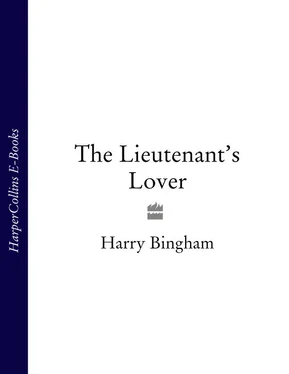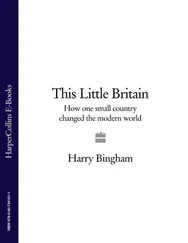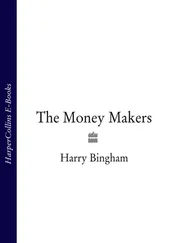‘He mortgaged them in June with the Petrograd Savings Bank, then sold his remaining interest in October to a consortium of fellow bourgeois. Please confirm the amounts of the relevant transactions.’
‘No, no, you have that all wrong,’ said Misha. ‘Those mines, they were on the estate in Zhavalya, they were his most important…’
The man took some papers from a drawer and threw them across the desk. Misha caught them and read them, stunned. The documents were obviously genuine. A brief note written in his father’s writing confirmed it absolutely. And the papers confirmed precisely what the man had been saying. Misha was dumbstruck. If his father had done as these documents suggested, then he must have sold virtually everything he’d owned. And the money had gone somewhere. But where? In the middle of a world war, it had hardly been safe to transport valuables out of the country. And as for anything inside the country, the Bolsheviks had confiscated all physical assets and they’d devalued or rendered worthless everything else.
Again and again, Misha’s thoughts returned to the safe in his father’s old study.
It was obvious that his father kept his most valuable possessions in there. And Misha knew that the Bolsheviks hadn’t yet gained access to it. Why hadn’t they just put dynamite to the hinges and blown it apart? Presumably because they suspected that what lay inside might be vulnerable to the blast. Not gold then, but papers.
Misha kept his knowledge secret, but he felt the interrogation was becoming increasingly formal, increasingly pointless. Misha didn’t have the answers the man needed. The man was becoming increasingly sure of it himself. The man asked again and again if Misha cared to remember any communication from his father he had hitherto chosen not to mention.
‘No. For heaven’s sake, I’ve been away in the army for a whole year. He sent letters of course. I’ve kept them. They’re back in the apartment. I can show them…’ Misha stopped, realising that the apartment was probably being searched as they spoke. ‘Well,’ he ended lamely, ‘you’ll see, there’s nothing there.’
Then suddenly, the phone on the desk rang loudly. The sound was immense: a landslide of noise. The man poked his wire-rimmed glasses higher up his nose and answered it. He spoke a word or two and listened. Then he nodded, said, ‘Good, very well,’ and hung up. He looked at Misha.
‘You’re right. There was nothing there.’ There was a short pause. No one moved. Then the man waved a hand at the door, tired but almost amused. ‘Comrade Malevich, you are free to go.’
Misha was taken home by the same car, the same driver that had brought him. Dawn was just beginning to lighten the eastern sky, but the city was still dark enough that all Misha could really see was the brightly lit channel carved by the car’s headlamps. The streets were severely iced and the car had to move slowly to avoid skidding.
They stopped at Kuletsky Prospekt.
‘Thanks,’ said Misha.
The driver shrugged.
Misha entered the house and closed the big door behind him. Something seemed wrong. He felt a draught on his face that he didn’t recognise. The hall, never warm, seemed unnaturally cold. From no motive that he could put a name to, Misha, instead of going directly upstairs to his frightened mother, moved across to the room that had been his father’s study. He opened the door as quietly as he could, not wanting to wake the families that would be snoring within.
Only he was wrong. There was no one there. The entire back wall had been ripped away. One whole side of the room was open to the night air and the snow. A light snowfall had drifted into the room itself and lay in a fine dust across the carpet and the mantelpiece. In the half-light of early dawn, the room glowed silver.
Misha stepped further on inside, hardly breathing. In the yard behind the house there stood a pair of tractors. A pair of thick iron chains ran from the yard into the room, and lay across the floor like a pair of giant metal snakes. A sentry stood in the shelter of one of the tractors, smoking a cigarette and looking the other way.
So that was it. The Bolsheviks had traced his father’s asset sales and hadn’t been able to locate the proceeds. And they, like Misha, suspected that this safe held the answers. Having failed to extract any answers from Misha that night, they’d rip the safe out in the morning, then blast their way into it.
Misha had never been close to his father, but he felt his presence in the empty room. His father had been powerful, distant, authoritative, dominant. It was almost impossible to believe that his life could be ended so simply, that his life’s work of turning one sum of money into a very much larger one could be ended by a pair of tractors and a few sticks of dynamite. Misha felt his father’s ghost, hovering in silence, watching the scene with the grim acceptance of a man who knows he’s been bested.
To the right of the safe, and still, ridiculously, in its old position, was an oil painting depicting the 1812 Battle of Borodino, in which Russian troops under General Kutuzov had halted Napoleon before Moscow. The painting was neither especially good nor especially valuable, but, for the dead businessman, it had symbolised everything important about the Russian spirit. The painting had always been referred to just as ‘the 1812’, as though the date said everything that needed saying. Misha remembered the picture postcard that had come with his father’s papers, amused at the coincidence.
Outside in the yard, the sentry threw away his cigarette, turned his face to the room, then yawned.
Misha froze. The light was growing now and he could see the sentry as clear as anything. Inside the room it was darker, but still barely inky. Misha pressed himself against a wall, hardly daring to breathe. It was crazy for him to be here, crazy and dangerous. He should go upstairs at once, home to his mother. He should leave this safe and all its contents well alone.
The moment lasted a few long seconds, before the sentry turned away again, back to his post by the tractor. Misha realised that it was the machinery that was being guarded, not the room. The safe was a safe, after all. And he didn’t go upstairs. Not yet.
He turned back to the painting. The familiar old picture, lined with the faintest powdering of snow along the horizontals of the frame, seemed to jog a memory. In his father’s last letters, he’d kept referring one way or another to the defeat of Napoleon. Perhaps it was his way of reading the disasters that lay ahead and reminding Misha that the Russian spirit would triumph in the end. Treading as quietly as he could, Misha walked up to the picture. A cavalryman on his horse held his sabre high above a cowering Frenchman.
The 1812.
Then Misha got it. In a sudden tumble of insight, he understood it all. Of course his father had been afraid for the future: the asset sales had been proof enough of that. And who could his father trust with his secrets except Misha, his eldest son? But Misha had been away. Letters directed from a Petrograd seething with revolution to a front line crumbling under enemy attack was hardly the most secure form of communication. If Misha’s father had wanted to communicate something of the highest importance, he might well have felt the need to use coded language.
And this was the clue: so simple, so utterly simple. The postcard had been another clue. His father’s references to the defeat of Napoleon had been yet another.
Misha guessed that this safe would unlock like other safes. He would have to turn its hundred-numbered dial clockwise to a particular number, then anti-clockwise to a second number, then again, and then perhaps again. But there was nothing to say that the numbers couldn’t be the same, or repeated.
Читать дальше












